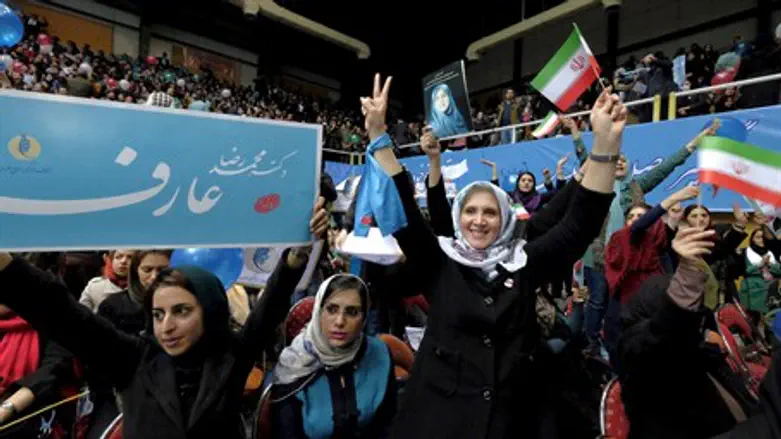
Dr. Soli Shahvar, the head of the Ezri Center for Iran and Persian Gulf Studies, does not see the pro-reformist election results in Iran as a particularly dramatic event. "There is nothing surprising in the people choosing the reformists," he told Arutz Sheva.
"The people want a change and the only place there is any change is in the reformists' agenda." Dr. Shahvar pointed out that the Iranian people have voted in this manner in the past and that history is repeating itself.
He added that the essence of the reform platform is merely a tactic to maintain the religious hold on political power. "The regime in Iran is made up of two main factions - the reformists against the conservatives who want to maintain things as they are. Each camp is also divided internally but these are the principles. Aside from these two factions there are reformists located outside of the regime. These are people with political opinions like former politicians and journalists who want a democracy in Iran."
However this latter group is never allowed to run in elections - candidates are all handpicked by the Supreme Leader.
As for the two main factions, Dr. Shahvar explains that both are fighting each other over which tactics to use in order to maintain the religious establishment's grip on the political regime. The reformists call for lifting a little pressure, improving the economy and so on, while keeping the Islamic framework. The conservatives see this as dangerous because, according to them, "if they make drastic changes it will bring an end to our rule in Iran." The disagreement is over tactics, but both want to maintain the religious control over the country's politics.
Dr. Shahvar belives that, given the progress the world is making, it will not be possible to maintain the leadership practices and policies that worked 1,400 years ago, and that this desire to advance with the spirit of the time can no longer be suppressed. The reformists in the government believe that, if they don't give the Iranian public room for change, things will lead to an explosion in another two years. This attitude is receiving greater support among the people and will allow the continued religious hold on politics.
During his remarks, Shahvar emphasized that, regarding the relationship with Israel, there is no real difference between the central factions. "Both are against Israel, at least openly." Despite this, there are different opinions on relations with the West. "The reformists say that it's time to be part of the family of nations, and the democratic and more open world in order to maintain commercial and cultural relations with the world. The conservatives say that they needed the reformists in order to remove sanctions, but now that the sanctions are lifted, they need to go back to the conservatives because the history of reformists in Iran teaches that Western culture will enter Iran and will weaken their hold on the country."
To this he adds that relations with Israel are at a turning point as a result of social networks and the ordinary citizen's access to information from outside of the country.
"They can't undo the influence of social networks that remove the Iranian people from their isolation. It gives them a neutral perspective without being influenced only by the regime. The people now know how to compare and know that the regime paints a distorted and unreal picture of what's occurring outside of Iran, including in Israel. More and more people in Iran understand Israel."
Shahvar states that, even in his own conversations with Iranians and the information he receives through Facebook, he finds more and more Iranians happy to find "how much the bad image of Israel is not true and was only created by the Iranian regime to demonize Israel."